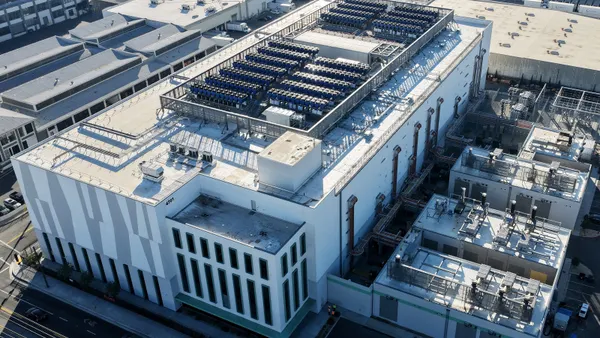Dive Brief:
- Regulators have approved a slate of demand-side management (DSM) programs offered by Kentucky Utilities (KU) and Louisville Gas & Electric (LG&E), though several were found to not be cost-effective and have been discontinued, helping to lower bills.
- The Kentucky Public Service Commission's (PSC) decision means a typical KU customer will see the monthly DSM bill surcharge decline by about $1.64, while LG&E customers will save about $0.97/month.
- The utilities had proposed dropping several programs, but beyond those, the PSC ordered KU and LG&E to cease providing assistance to schools to hire energy managers, concluding it was not cost effective.
Dive Insight:
Kentucky Utilities has been offering DSM programs since the 1990s, and company officials say they are always adjusting the offerings which are subject to PSC approval. The removal of several programs is a normal occurrence, they say, and allows other popular programs to be continued.
"Over the years, our program offerings have continued to evolve — some programs have expired because they’re no longer cost-effective to our customers, some have extended on, and others have been introduced as new programs," Kentucky Utilities told Utility Dive in an email. "These changes are based on factors like our customer’s energy-use habits, improvements to industry standards and customer feedback."
Approved projects include a weatherization program for low-income customers and a demand response program that would cycle heat pumps, air conditioning and other appliances for residential and small commercial customers.
Regulators did, however, limit the size of the demand response offering, saying in a statement that "the program will be modified to reduce the rebate and to cap participation at the current number of customers." A program for large non-residential customers will also be modified to cap participation and reduce rebates.
In addition, a rebate program that incentivizes large non-residential customers to install energy-efficient equipment "will be modified to base incentive payments on actual savings, rather than providing a fixed dollar amount," the PSC said.
In addition to ending the school energy manager program, regulators approved Kentucky Utilities' plan to discontinue other programs that were no longer cost-effective, including: rebates for purchasing energy efficient appliances, payments to customers who dispose of old and inefficient refrigerators, home energy audits, public education efforts and others.
"The programs set to expire were no longer cost-effective to our customers, and with these programs expiring, our residential customers in particular will see a cost savings on the DSM line item on their monthly bill," the utility said.
Earlier this year, the PSC ordered KU and LG&E to reduce revenues by $203.8 million — about a 6% decrease for electric customers and 4.5% for gas. The utilities have since pushed back on that decision, citing procedural and factual errors in the proceeding.













